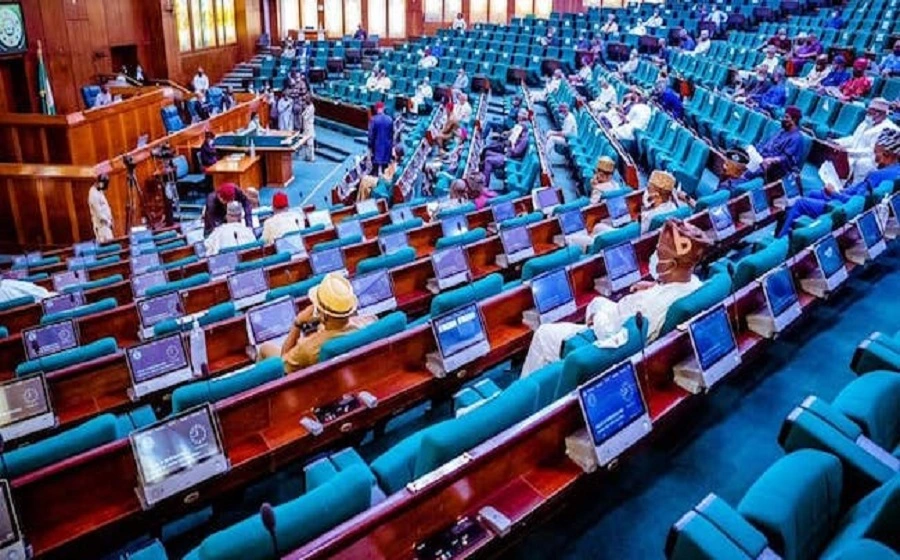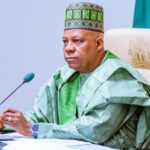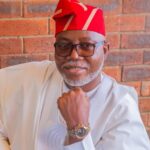The ongoing move by the House of Representatives through a bill to exclude the personnel of the National Assembly from the Contributory Pension Scheme (CPS) has drawn reactions from stakeholders in the pension industry.
The bill had been listed for third reading, but the Speaker of the House, Femi Gbajabiamila, was forced to step down the passage to allow consultation by the differing sides.
However, Daily Trust on Sunday spoke with some experts, including the Pension Fund Operators Association of Nigeria (PenoP), who insisted that the lawmakers were taking the legislative action initially without consulting industry watchers and the general public.
A recent bill by the House of Representatives to amend the Pension Reform Act 2014 to exempt personnel of the National Assembly Service from the CPS and to establish the National Assembly Service Pensions Board is currently raising eyebrows in the public domain.
FACAN appeals to Gov Ayade to suspend cocoa, others regulations
NDE disburses loans to 42 beneficiaries to start goat production in Kaduna
Daily Trust on Sunday understands that the bill, which is in the third stage now, did not have an input from the public and major stakeholders were not carried along.
Also, just like the normal legislative process of subjecting a bill to public hearing, there was no public hearing of any kind on this particular bill.
The proposed legislation titled: ‘Bill for an Act to Amend the Pension Reform Act, 2014, to Exclude/Exempt the National Assembly Service from the Contributory Pension Scheme and Establish the National Assembly Service Pension Board; and for Related Matters (HB. 2025)’, was sponsored by the chairman, Committee on National Planning and Economy Development, Olododo Cook.
Cook said the aim was to exit the National Assembly Service from the contributory pension scheme under the Pensions Reform Act, 2014, and the board when established, would be charged with administering the pension scheme for the personnel of the National Assembly Service.
Further checks by Daily Trust on Sunday show that the proposed amendments provide that there is an established pension board (in this bill referred to as ‘the board’), which shall be charged with managing the payment of pensions and gratuities to all the personnel of the service.
“The bill shall apply to all the personnel of the National Assembly Service, including those who had retired before the commencement of this bill. The retirement benefits of the personnel referred to in sub-section (2) shall be adjusted to be commensurate with the provisions of this bill. They shall be charged on and paid out of the Consolidated Revenue Fund of the Federation, all such sums of money as may, from time to time, be granted by the federal government by way of pension and gratuity in accordance with this bill,” the content of the bill further reads.
Familiar trend
Daily Trust on Sunday reports that this is not the first time the House of Representatives is sponsoring a bill to exclude a department or agency of government from the Contributory Pension Scheme. For instance, the House last year sponsored a bill to exempt the Nigeria Police Force (NPF) from the contributory pension scheme like their counterparts in the military and the intelligence agencies.
The proposed legislation titled: ‘A Bill for an Act to Amend the Pension Reform Act, 2014 to Provide for Exemption of the Nigeria Police Force from the CPS, and for Related Matters’, was sponsored by Francis Waive.
He explained that the bill sought to amend section 5, sub-section 1, paragraph (a) of Pension Reform Act of 2014 to include the Nigerian Police Force as part of the categories of persons exempted from the scheme, “because their pension is meagre compared with other security agencies and the contributory pension is an impediment to their access to benefits.”
However, at a public hearing earlier this year, stakeholders in the pension sector made submissions highlighting the dangers of the move to exclude the police from the scheme.
In the same vein, a new pension scheme was introduced recently, which provides a life pension for civil servants who have attained the status of Head of Civil Service of the Federation (HCSF) or permanent secretaries.
Although it was approved by President Muhammadu Buhari and is rattling Nigeria’s contributory pension scheme, many stakeholders in the sector believed that the president was misguided into signing the new scheme as it was widely condemned.
Move to truncate CPS unacceptable – Operators
Meanwhile, the Pension Fund Operators Association of Nigeria had expressed displeasure over the bill, which is being sponsored by Rep members.
The operators had expressed concern about the way and manner Rep members were going about the process without any input from stakeholders and the public
According to a statement by PenoP, a player in the industry said, “We are not convinced that this bill was passed in “good” faith. We also believe that an important bill of this nature should go through the standard and due legislative processes. One of such processes is the convening of a public hearing, where all the stakeholders affected by the bill are invited to discuss and engage.
“All the stakeholders, like the workers union, organised Labour, pension fund operators, regulators, employers of labour and others were not engaged in the process.
”We are also aware that some principal officers of the House who normally should oversee the passage of bills were unavoidably absent, bringing the integrity of the process into question. We are forced to question whose interests this bill is geared to serve.”
“It needs to be ascertained why the bill was passed without the crucial input of citizens and stakeholders. This breach of sacrosanct legislative processes and the rather hurried passage of this bill, triggers serious concerns and should be revisited urgently in the interest of both National Assembly staff, the pension industry and the country in general.
“As a matter of fact, there are a number of proposed amendments to the current pension act that have been proposed within the House for a number of years. So, for this bill to pass quickly while others are left unattended to speaks of ulterior motives.”
PenoP also explained, “lt is pertinent to note that the federal government had earlier issued a white paper stating that the police or any other government agency should not leave the contributory pension scheme as it is federal government’s way to have structured and sustainable pensions for its employees.
“So, this makes this recent bill to exit the National Assembly staff quite puzzling and at cross purposes with the fiscal situation of the country or the stated position of the executive.”
Nigeria’s pension industry has grown over the last 18 years since the Pension Reform Act (PRA) was initially enacted in 2004. The industry has ensured that the average Nigerian worker is able to retire in peace and dignity.
The act brought about the professionalisation of pension fund administration and the growth of the pension industry in Nigeria. There are many gains the pension industry has achieved, and there is a great need to protect these gains from individuals seeking personal gains.
Over the last number of years, many actors have tried to reverse these gains, usually from seeking to amend the act that would allow groups of people to leave the scheme. These acts are typically done through legislative actions as certain groups sponsor bills to exit the CPS.
Excluding NASS workers from CPS ‘ll burden finances – Expert
Meanwhile, a development expert at the Centre for Fiscal Transparency and Integrity Watch (CeFTIW), Victor Ago, told Daily Trust on Sunday that if the bill saw the light of the day, it would be a huge burden on government’s finances.
Ago said the federal government was already paying huge amounts for expenditure in the budget, so adding pension liability of workers of National Assembly would be inappropriate
He added, “Actuarial reports have shown that it would be impractical and irresponsible to move the police or other sectors of the Federal Civil Service from the current CPS to a Defined Benefit Scheme (DBS) because of the amount of funds this would cost, the fiscal position of the government and the effect it would have on future retirees.
“As such, it will not be appropriate to move the police or other sectors of the Federal Civil Service from the current CPS to a Defined Benefit Scheme (DBS) because of the amount of funds this would cost, considering the fiscal position the government is currently in.”

 Join Daily Trust WhatsApp Community For Quick Access To News and Happenings Around You.
Join Daily Trust WhatsApp Community For Quick Access To News and Happenings Around You.


